Coronavirus: Baby steps as shielders move back into world
- Published
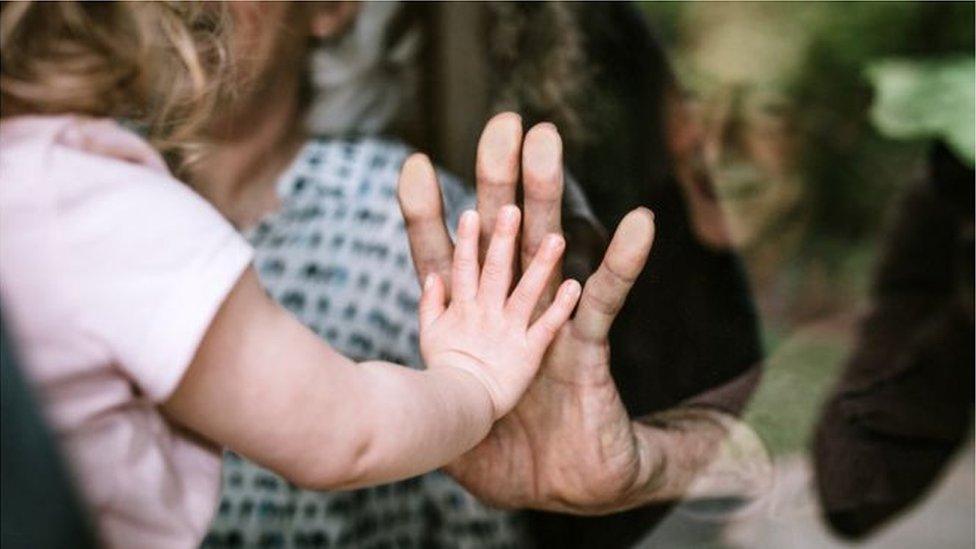
There's a world beyond the window... but shielders remain wary
No stampede for the door; no dancing in the streets. For thousands of people across Northern Ireland who have been shielding since the Covid-19 pandemic began, midnight on Friday marked an end point.
Until now, their worlds have been bubble-wrapped to keep them safe.
Now the health minister has pressed the pause button on shielding. But is it a case of "see you later, isolator", or is the world outside the window too scary?
'Face masks should be compulsory'
Marianne Cleary is 32 years old and has a rare neurological condition.
Travelling from her home in Crossgar to hospital appointments as lockdown ended, she was dismayed that so few people were wearing face masks.
"I was really shocked," she said.
"The decision to not make them compulsory until 20 August has been, at best, dangerous and at worst completely negligent.
"Face masks should have been compulsory by the time the most vulnerable in society were allowed out."
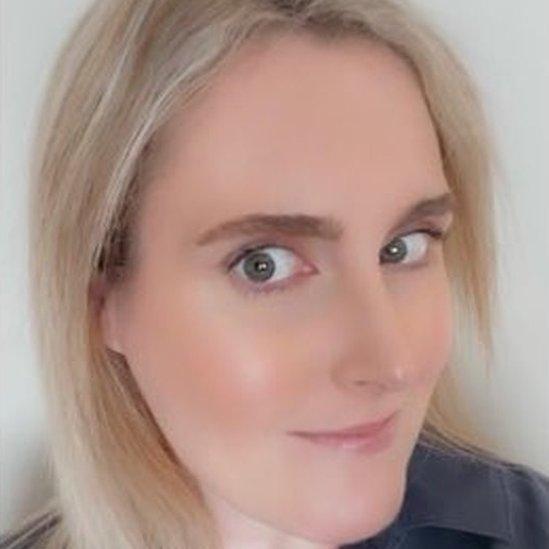
Marianne Cleary says she will be taking "baby steps" out of shielding
Marianne will not be rushing out into the world.
"Baby steps and caution seems the most logical way forward for me personally," she said.
"I certainly won't be taking any unnecessary risks like going to restaurants or pubs. I haven't found a meal or drink yet that I would, quite literally, die for."
She worries about shielders' mental health and believes that a better system could have been put in place to make their return to the world more gradual.
If hairdressers and beauticians all put aside time solely for people who had been shielding, that might help, she said.
"It certainly would reduce the anxiety people have, now that it is coming up to the end of our exile."
'I nearly fooled myself we were on holiday'
For Lynne Armstrong from Belfast who has multiple sclerosis, shielding had highs and lows.
Her children had planned to travel thousands of miles to help Lynne and her husband Alastair celebrate their golden anniversary. But that had to be called off.
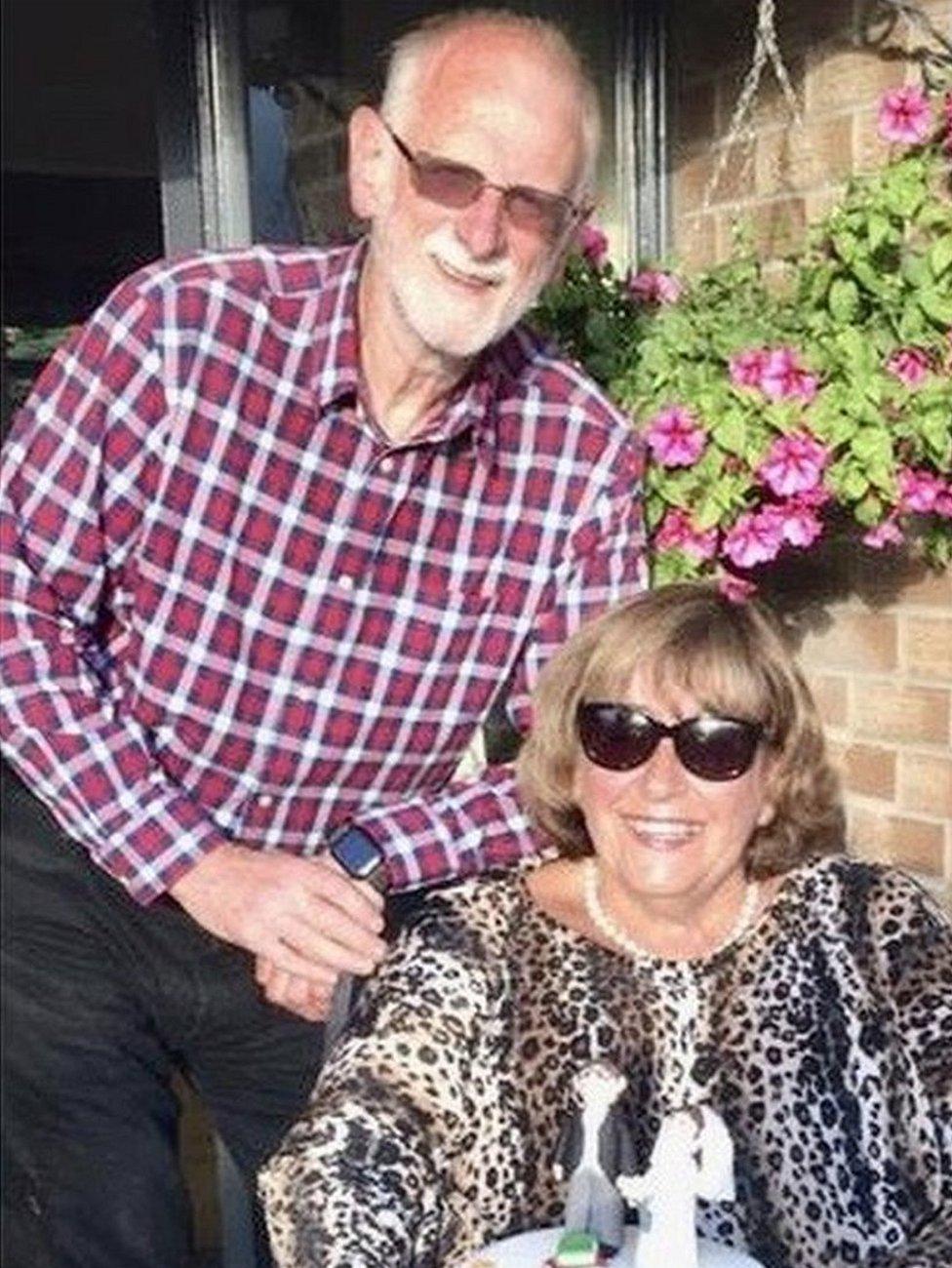
Lynne and Alastair Armstrong marked their golden wedding anniversary with a small celebration
"At the beginning, I was absolutely fine with shielding. The weather was gorgeous and I was sitting out in the garden," she said.
"I'm a very positive person and I had nearly fooled myself that we were on holiday."
Of course she was concerned.
"There were times when everybody was really scared and it was as if a big black cloud was sitting over our house."
For Lynne, the antidote was to switch off the news.
She was also worried about her dependence on carers - a variety of people were coming to the house - and, initially, she supplied face masks and sanitiser herself.
"Obviously there cannot be social distancing. If you have a disability, you require carers. So you cannot shield even if you have been told you have to."
She is tentative about moving out into the world.
"I am really quite scared. It is becoming a wee bit more difficult as it is coming to an end." she said.
"I find myself thinking that I have not been to the shops for so long. If I go out and people are breathing over me, am I going to end up getting Covid?
"And yet, you need to see people face to face for your mental health.
"I am probably going to have to give myself a good talking to."
'You can't stay in forever'
Michelle McKeown from Bangor is wary but willing to embrace an end to shielding.
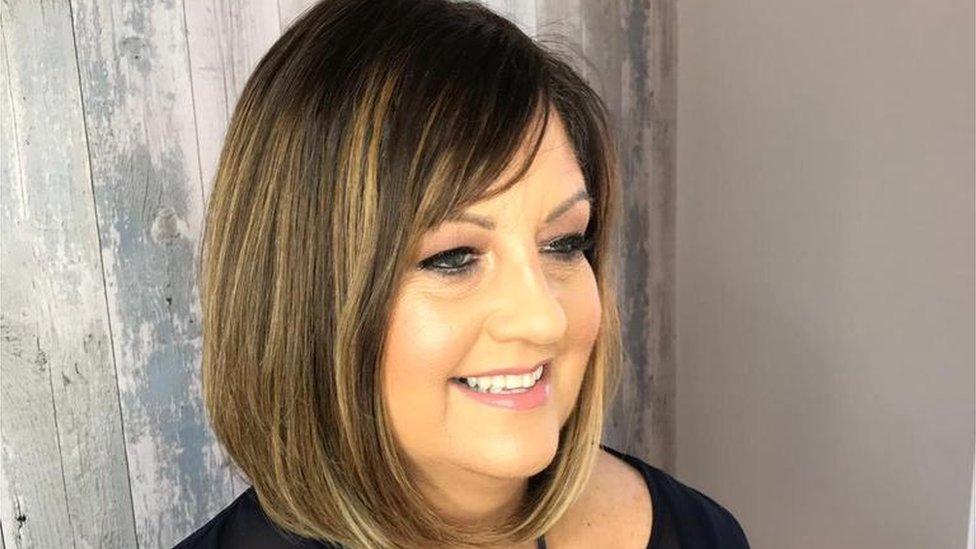
Michelle McKeown will not be rushing out into the world
She has rheumatoid arthritis.
"I was relieved to be able to work from home at the beginning of the pandemic," she said.
"I felt wary. The scenes on television were frightening. So when it came to shielding, I did it with a heart and a half."
But as the weeks went on, it was people that she missed.
"I missed just getting out for lunch or a meal with friends and family.
"When you cannot go to a funeral for people who would love your support, that is very hard."
Now, she is cautious.
"I don't know that I will be rushing out," she said.
"You can't stay in forever. But I'll be going out in a very careful fashion - mask on and hands washed."
'It wasn't a hardship'
Surviving a liver transplant in 2018 meant Jim Kilpatrick from Donaghadee already had a sense of what it was like to shield.
He is philosophical about it.
"It wasn't a hardship," he said.
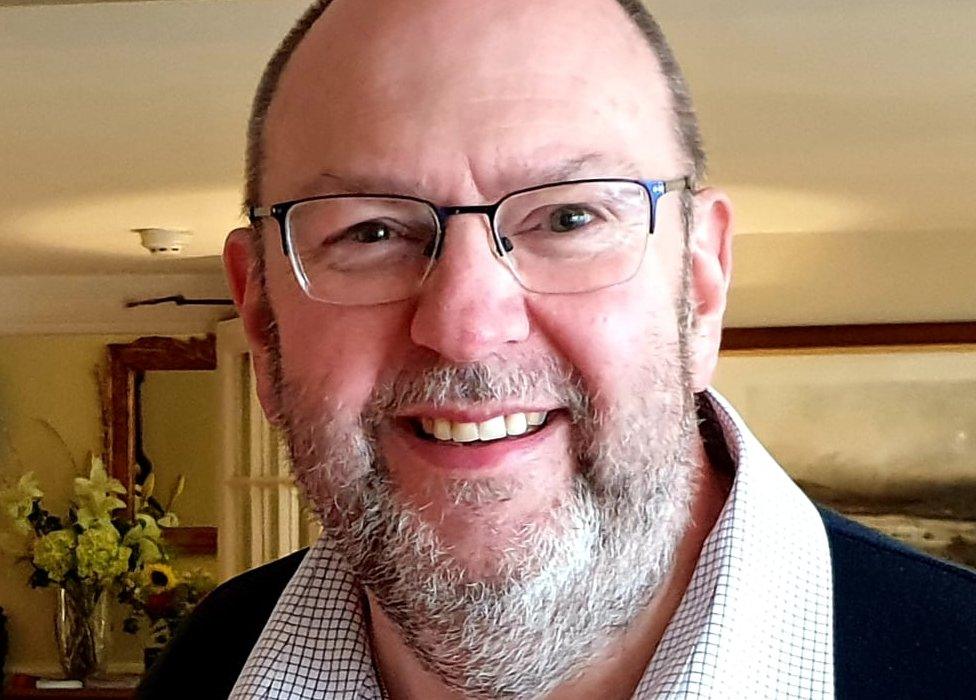
Jim Kilpatrick is taking steps to move forward and get back out into the world
But as part of a support group for liver patients at the Royal Victoria Hospital, he understands how others might feel.
"Some are very, very wary about what they might and might not do, even after the pausing of shielding," he said.
"It is what they feel safe and comfortable with. They are cautious around shopping centres and a lot of them do not plan to eat out."
He is also concerned for people who are awaiting transplants.
In recent times, as cases of Covid-19 have fallen, there has been an upturn in assessments and transplants.
But that positive turnaround could easily be reversed.
"It is difficult that treatment (for people on the transplant list) might be impacted by something over which they have no control.
"That is something that nobody wants to face. But the reality is it may well be what happens."